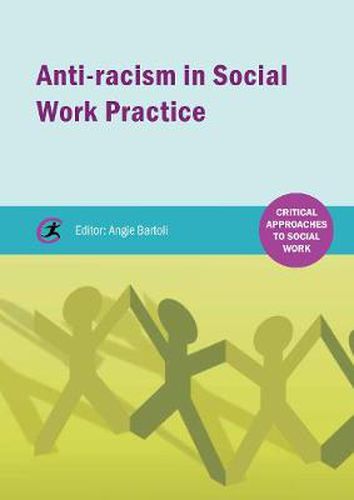Readings Newsletter
Become a Readings Member to make your shopping experience even easier.
Sign in or sign up for free!
You’re not far away from qualifying for FREE standard shipping within Australia
You’ve qualified for FREE standard shipping within Australia
The cart is loading…






Anti-racism has a long history within the profession of social work and its education. Despite an agenda within higher education which promotes internationalization and practice which recognizes diversity, little has been written to address the question of why black African students have a different experience from others on their social work educational journey.
This book is based upon the authors’ experience as educators and their own research about and with black students’ experience of racism and ‘otherness’ within social work practice and education. Radical and honest in nature, it re-visits anti-racism within social work practice and education from a student focused and informed perspective based on lived experience and conversations.
This book will be of interest to all social work students, educators and policy makers with an interest in anti-racism and diversity. It includes practical models and tried and tested tools to help the reader work through these issues.
Tools that can assist students in discussing uncomfortable issues in the classroom are to be welcomed, and this book is thus a valuable resource. This book offers many examples of how racism can be addressed in social work education and training. Important features of the book are the summaries of key pieces of research in each chapter, as well as, case studies and critical questions, which provide a springboard for discussion. It offers a timely reminder that discussion about race and anti-racist forms of pedagogical approaches for teaching has fallen off the agenda. It is written in an accessible style, is an engaging read, and this is a welcome addition to the literature.
Dr Claudia Bernard, Goldsmiths College
$9.00 standard shipping within Australia
FREE standard shipping within Australia for orders over $100.00
Express & International shipping calculated at checkout
Anti-racism has a long history within the profession of social work and its education. Despite an agenda within higher education which promotes internationalization and practice which recognizes diversity, little has been written to address the question of why black African students have a different experience from others on their social work educational journey.
This book is based upon the authors’ experience as educators and their own research about and with black students’ experience of racism and ‘otherness’ within social work practice and education. Radical and honest in nature, it re-visits anti-racism within social work practice and education from a student focused and informed perspective based on lived experience and conversations.
This book will be of interest to all social work students, educators and policy makers with an interest in anti-racism and diversity. It includes practical models and tried and tested tools to help the reader work through these issues.
Tools that can assist students in discussing uncomfortable issues in the classroom are to be welcomed, and this book is thus a valuable resource. This book offers many examples of how racism can be addressed in social work education and training. Important features of the book are the summaries of key pieces of research in each chapter, as well as, case studies and critical questions, which provide a springboard for discussion. It offers a timely reminder that discussion about race and anti-racist forms of pedagogical approaches for teaching has fallen off the agenda. It is written in an accessible style, is an engaging read, and this is a welcome addition to the literature.
Dr Claudia Bernard, Goldsmiths College